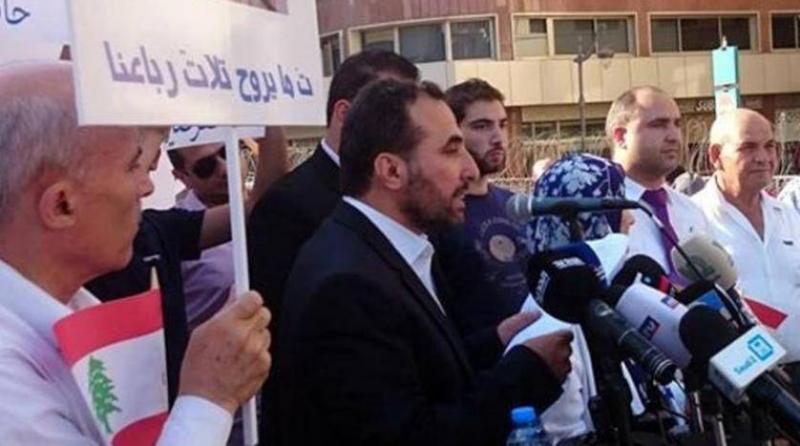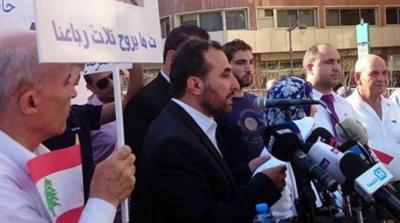It is true that the Lebanese Ministry of Interior recorded an increase in the number of electoral lists for the upcoming 2022 elections, with a difference of 26 lists compared to the previous elections. However, the paradox lies in the decline of opposition electoral lists against the Shiite duo, "Hezbollah" and the "Amal Movement," in the southern and Bekaa districts, which diminishes hopes for changing the ruling power structure through the ballot boxes; especially after the October 17, 2019 uprising and the ongoing economic and financial collapse in Lebanon.
The reasons behind the withdrawal of many from the electoral adventure and the desired change are varied. Ali Al-Amin, publisher of the "Janoubia" website, attributes these reasons to the "security and military dominance of Hezbollah's state over everything, against the absence of support for sovereign forces, which cannot confront under the current situation." He asserts to "Asharq Al-Awsat" that "the message of the assassination of Loukman Slim (the political researcher strongly opposed to Hezbollah) was primarily directed at the Shiite community before anyone else, which generated an unprecedented sense of frustration, exacerbated by the total absence of the state's security and judicial institutions, and the feeling that entering a polling station is akin to entering a party center."
Shiite candidates opposing Hezbollah often face harassment that can escalate to physical assault, as well as invasions of homes and properties, leading some to withdraw due to the threats and difficulties in accessing polling stations. Al-Amin indicates that "all polling stations are controlled by the party, and the heads of polling stations operate under the will of the controlling force, generating significant fear among voters." He adds that "some do not see elections as a gateway to change because Hezbollah is capable of rigging them and altering their results, even overturning results if they are not in favor." He considers that "the crisis goes beyond the results of the elections, as the party has previously declared that regardless of the results, no one can govern alone since the country is subject to consensus, noting that it alone decides how that consensus occurs." Al-Amin questions: "Was there consensus when the party went to fight in Syria, Iraq, and Yemen? Did it wait for consensus before invading Beirut on May 7? Where was the consensus when it ousted Saad Hariri's government in 2010 and formed a one-color government?"
Three lists are competing in the Southern Tyre-Zahrani constituency against the list of the Amal-Hezbollah alliance, while two opposition lists are contesting in the Nabatiyeh district against the Shiite duo's list, and four lists are present in the Sidon-Jazzin constituency, one of which is supported by the aforementioned duo. Al-Amin emphasizes that "the frustration reflects a widespread state of objection, in the face of the impossibility of effecting change through the electoral process." He believes that "the continuation of the current reality will lead to a widespread explosion that may be worse than war." He concludes by saying, "If the October 17 revolution was marked by a peaceful uprising, the ensuing chaos will be defined as the upcoming social explosion that will manifest in its ugliest forms and shapes."
The bleak picture in the southern districts appears even darker in the Bekaa region; particularly in the Baalbek-Hermel district, where Hezbollah has absolute influence. Sheikh Abbas Yassbek, a member of the Consultative Gathering of Baalbek-Hermel residents, expressed his regret over "conducting elections under the Iranian occupation represented by Hezbollah." In a statement to "Asharq Al-Awsat," he noted that the residents of Bekaa "live under a vile military occupation that dominates the security, military, and judicial apparatuses, and is at the same time a cultural and religious occupation being propagated under the pretext of preserving the achievements of the resistance." Yassbek pointed out that "withdrawal is the theme of the upcoming elections, as the sovereign forces in this area cannot carry weapons and possess authority, wealth, and influence while managing gangs outside the law to serve its agenda," also noting that "Hezbollah monopolizes the Shiite decision in Lebanon and entices it with the argument that the Shiite governs the country, considering anyone who deviates from its orders as targeting the resistance and its environment and victories."
Despite its pre-emptive comfort with the results, the electoral machine of the Shiite duo in the Bekaa continues to operate without pause, as it fears voter withdrawal and low participation rates at polling stations. Sheikh Abbas Yassbek points out that the party "senses the gravity of the country's collapse under its rule, and it cannot absolve itself of responsibility with a president of the republic (Michel Aoun) loyal to it and a government that is subject to its authority and holds a majority in the parliament." He noted that the party "bears the responsibility of missing the opportunity for change that emerged with the revolution, but it toyed with it and persecuted its activists in the squares."
In the Baalbek-Hermel district, two main lists are competing, one from Hezbollah and Amal, challenged by the Lebanese Forces list, which lacks the essentials for meaningful penetration. Yassbek indicates that the Forces list "contains numerous contradictions, but the Lebanese Forces’ votes, which amount to around 14,000 voters, will converge fully on the candidate Antoine Habchi to ensure his victory." He believes that "the other lists are weak, having been formed at the behest of Hezbollah to fragment the competing votes and ensure a sweeping victory for its list."
Conversely, local sources in the Bekaa spoke of "a process of co-opting opponents that is actively underway." These sources told "Asharq Al-Awsat" that "the state of confrontation with the party has greatly diminished," and confirmed that the party "responds to popular movements that occasionally arise in protest against its policies by activating the files of wanted individuals, lifting protection from persons pursued judicially, and allowing the army and security forces to track and arrest them, thus enabling it to play a mediating role in their release and subsequently co-opt them to its will."




